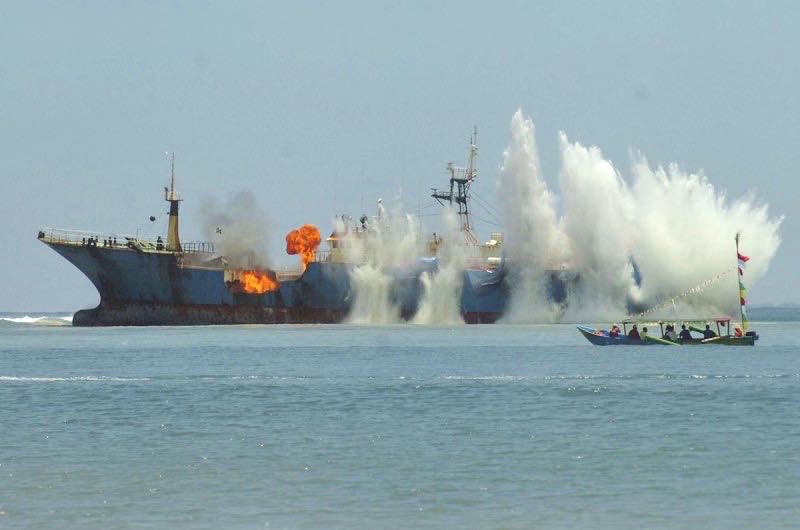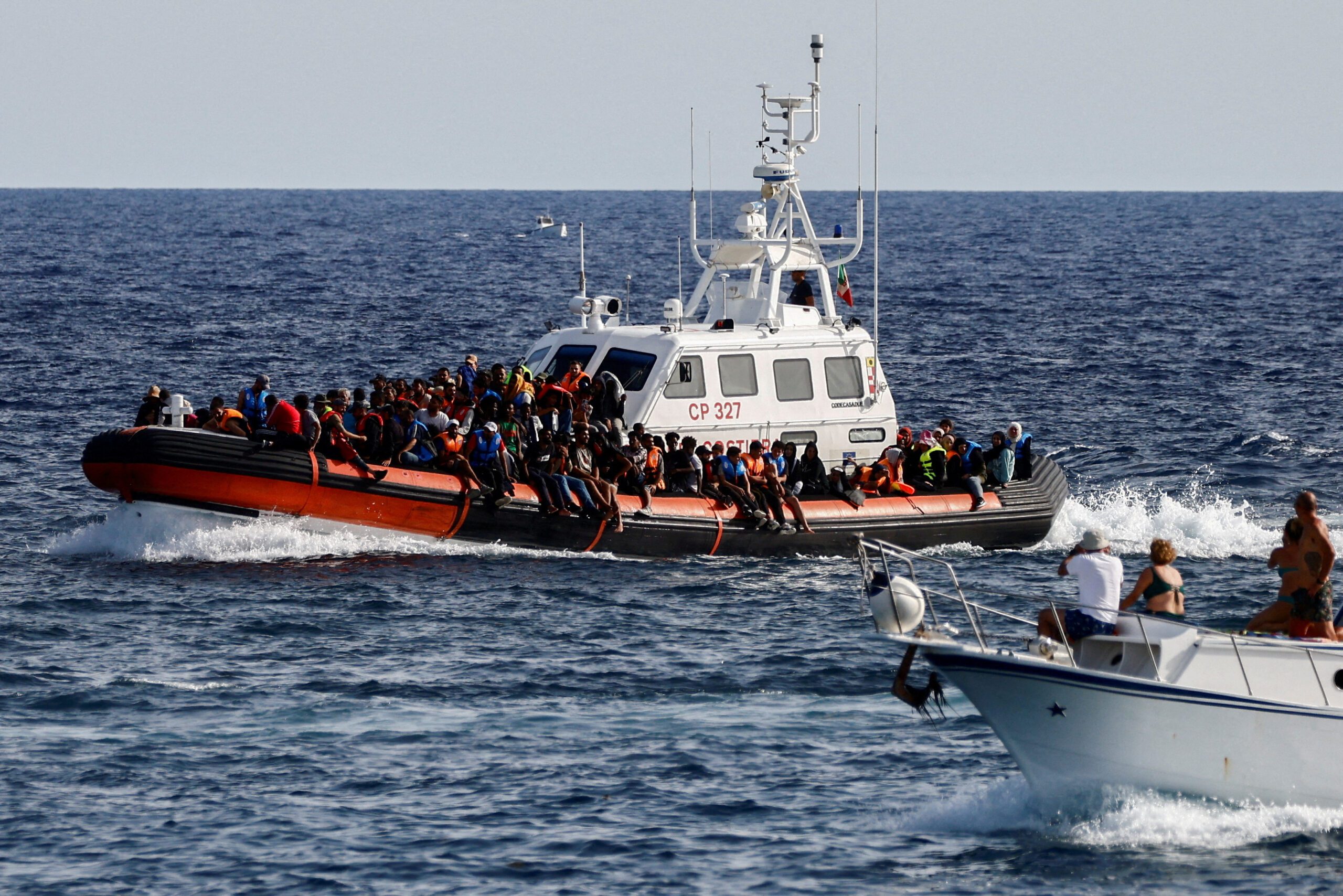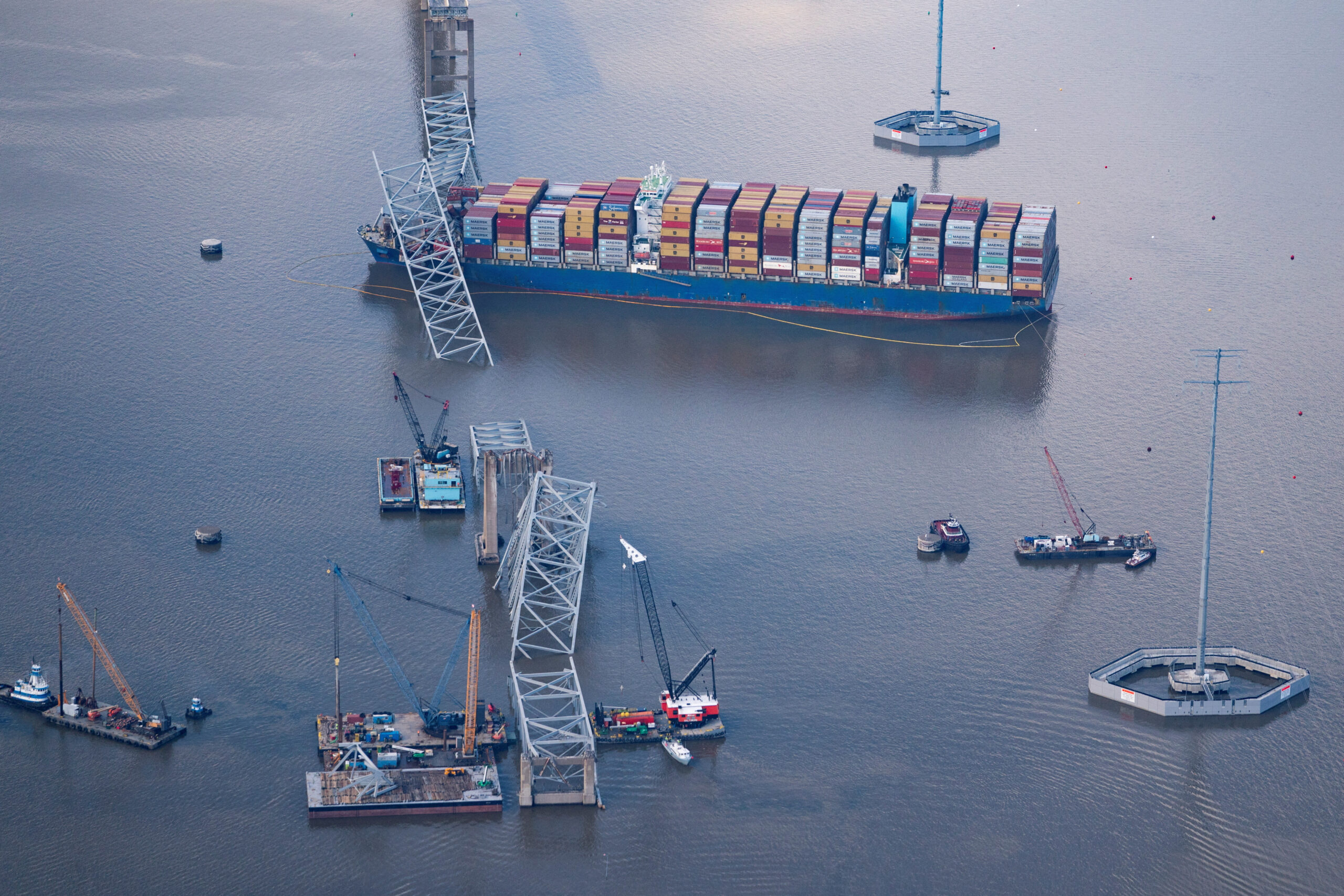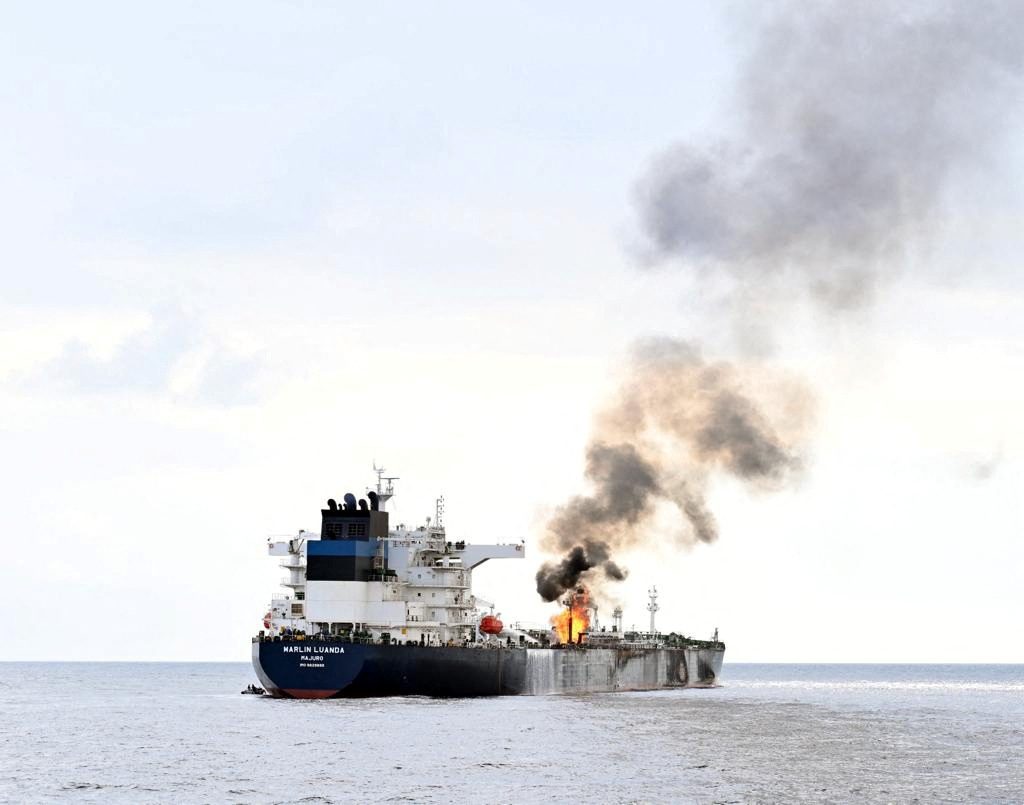The Indonesian Navy and the Ministry of Maritime Affairs and Fisheries blow up an illegal fishing vessel near Tanjung Batumandi, Pangandaran, West Java, on March 14, 2016. Photo credit: REUTERS/Adeng Bustomi/Antara Foto
By Karlis Salna (Bloomberg) — Indonesia’s Fisheries Minister Susi Pudjiastuti deals with some dangerous men in her role, but they don’t rattle her. She has an equally intimidating weapon on her side: Google.
Partnering with the search engine firm, Pudjiastuti is catching illegal fishing activity in real time, after thousands of vessels’ locations were revealed online. In her mission to clean up an industry once the domain of crooks, she’s convinced powerful local operators with foreign interests to stop practices that were robbing the economy of billions of dollars of revenue each year.
“You have money, you have power, you have the reach probably to make me fail or to even basically eliminate me,” Pudjiastuti recalls telling the industry’s so-called “godfathers” in meetings shortly after joining President Joko Widodo’s government in 2014. “But I also will not stop.”
After hunting down violators and blowing up their boats in public spectacles, Pudjiastuti’s approach has become more sophisticated. In a global first, the minister has teamed up with Google to use satellites to spot illegal fishermen from space. It’s paying off: Indonesia’s fish stocks have more than doubled in two years, and an industry plundered by foreigners for decades is once again contributing to economic growth, which Widodo has pledged to boost to 7 percent.
See Also: Scientists Use AIS Data to Map Global Fishing Activity in Extraordinary Detail
In a sprawling archipelago of 17,000 islands, the potential is vast. While fishing currently accounts for just 2.6 percent of Indonesia’s gross domestic product, that portion has grown about 40 percent since Pudjiastuti started her role. At that time, there were some 10,000 foreign vessels fishing illegally in Indonesia’s territory. She says they’re now all but gone.
Global Pirates
But it’s not game over for the minister: she says local boats are still working with “global pirates” who catch fish just outside the permitted zone, which are then shipped to foreign destinations. And that’s where Google comes in.
“They still steal from us. We see it on Google fishing watch,” Pudjiastuti said, referring to Global Fishing Watch, an online mapping platform co-founded by Google. “They use Indonesian-affiliated companies and businesses and basically take their catch a few miles beyond the exclusive economic zone, where a refrigerated mothership is waiting.”
Indonesia last year became the first nation to share its Vessel Monitoring System information — government-owned data used to monitor maritime traffic — with the global monitoring platform, founded by Google, Oceana and SkyTruth, and funded by partners including the Leonardo DiCaprio Foundation and Bloomberg Philanthropies.
Pudjiastuti’s initiative instantly made nearly 5,000 previously invisible boats viewable. She has called for other nations to follow her lead, with Peru last year committing to making its fishing data available.
Brian Sullivan, the manager of Google Ocean and Earth Outreach, said information from Indonesia’s VMS was fed through the same algorithm used by Global Fishing Watch to produce a new set of analytics. That was then added to raw satellite imagery to produce an even more detailed footprint of fishing activities in near-real time.
“Susi reached out to us and said ’I like what you’re working on, we’d like to see how we could use that information in Indonesia,” California-based Sullivan said in a telephone interview. “She has been probably one of the most progressive ministers within fisheries for taking something that historically all governments had kept extremely close.”
Watching You
By using machine learning and watching how a vessel moves, Google’s technology is able to establish patterns, and determine whether a vessel is in transit or fishing.
A study published last month found that foreign fishing in Indonesia dropped by more than 90 percent and total fishing by 25 percent following the tough policies introduced by Pudjiastuti, which also included a ban on all foreign-owned and -made boats from fishing in Indonesia and the restriction of transfers of fish at sea.
“We know what it looks like when a vessel is broadcasting because we see that vessel’s position,” said Sullivan. “And if it then goes quiet for a while and then reappears on the other side of a marine-protected area that would be considered suspicious activity.”
Ship Wrecker
With almost 34,000 miles of coastline to monitor, the minister and her partners have a big job. But it’s not just about economic gains and food security: it’s also about sovereignty, an issue that plays well for the domestic audience.
In 2016, Indonesia marked its Independence Day celebrations by sinking about 70 foreign fishing vessels, mostly from Vietnam but also from China. It was an overt display aimed at sending a message: the nation intended to protect its lucrative fishing grounds, including in the South China Sea.
Since the end of 2014, Pudjiastuti has sunk more than 350 boats.
“They take our resources. If we don’t put an end to them they’re going to come back and fish again,” she said. “And now I am screaming — I want to tell everybody ‘Be aware, they are moving to you’.”
© 2018 Bloomberg L.P
Unlock Exclusive Insights Today!
Join the gCaptain Club for curated content, insider opinions, and vibrant community discussions.

 Join The Club
Join The Club













